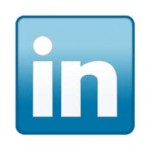 What’s the point?
What’s the point?
To most, it’s called a LinkedIn profile. To me it’s best described as “one of the most powerful marketing opportunities for professionals to date”.
Your LinkedIn profile is an ad and you can maximize it by using marketing techniques. One of the most fundamental is setting objectives. Like all ads, your LinkedIn profile needs to have a purpose. What’s yours? Why are you on the site?
Many people are on LinkedIn simply because they heard they should be. If all you do is sign up, and add a little content without any specific goal in mind, then admittedly you’re not wasting much time or effort. What you are wasting though is the great potential this platform offers to professionals.
So who should be on LinkedIn and why?
If you’re an individual looking for work, you should be on LinkedIn. More and more companies are skipping the cover letter and resume route opting for a link to you profile instead. In addition, recruiters rely heavily on LinkedIn to find candidates. It’s their go-to site.
If you’re an individual looking for clients, you should be on LinkedIn. It’s a great place to showcase your expertise well beyond your resume. LinkedIn has evolved into a full and flexible content platform that allows you to include links and uploads that demonstrate your service and/or products.
If you’re a company looking for clients, you and your key client-facing players should be on LinkedIn. You can learn a lot about a company from the company it keeps. When you do a company search on LinkedIn, a list of its employees comes up. If your key client representatives aren’t looking sharp on LinkedIn, then you’re missing a huge branding opportunity.
Learn how to optimize your brand’s LinkedIn presence using profiles of your executives.
If you’re looking for employees, you and your executive team should be on LinkedIn. Bosses have an enormous effect on everything from company culture to morale to individual advancement. Well-crafted LinkedIn profiles (as well as your website’s “About Us” introductions) can have a positive influence on candidates.
If you’re looking to network with contemporaries, you should be on LinkedIn. You can join groups with like-minded professionals and industry leaders. You can make connections through the dialogues initiated in the groups. What’s more, when you meet people at events, you can enjoy on-going relationships by staying in touch through LinkedIn. There’s just no better place to network.
If you want to learn from others in your field, you should be on LinkedIn. There are countless groups on LinkedIn where you can pose questions and get advice from a broad group of people and perspectives. You can also follow influencers in your field whose blogs and updates can provide wealth of advice.
If you want to stay abreast of business trends and influencers, you should be on LinkedIn. Who are the leaders in your field? What are the topics that are trending? If you want to stay current, LinkedIn will save you hours of research by making it easy to see what the hot topics are and who’s behind them.
A final point There are a number of good reasons to be on LinkedIn depending on your business goals. The most important reason for determining yours is so you can craft a summary, post a photo, join groups and engage in dialogue that will advance your efforts.
